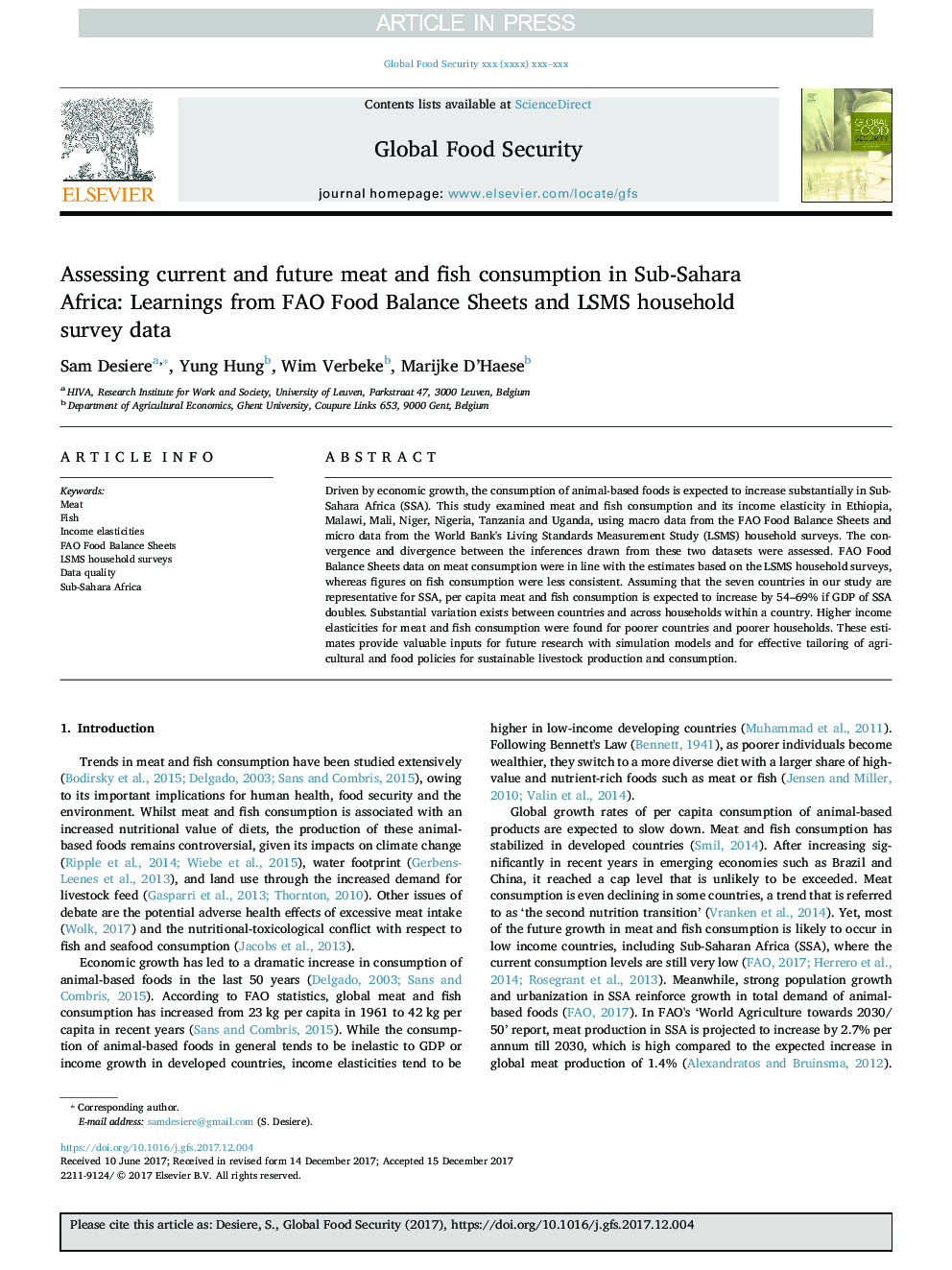| Article ID | Journal | Published Year | Pages | File Type |
|---|---|---|---|---|
| 7454539 | Global Food Security | 2018 | 11 Pages |
Abstract
Driven by economic growth, the consumption of animal-based foods is expected to increase substantially in Sub-Sahara Africa (SSA). This study examined meat and fish consumption and its income elasticity in Ethiopia, Malawi, Mali, Niger, Nigeria, Tanzania and Uganda, using macro data from the FAO Food Balance Sheets and micro data from the World Bank's Living Standards Measurement Study (LSMS) household surveys. The convergence and divergence between the inferences drawn from these two datasets were assessed. FAO Food Balance Sheets data on meat consumption were in line with the estimates based on the LSMS household surveys, whereas figures on fish consumption were less consistent. Assuming that the seven countries in our study are representative for SSA, per capita meat and fish consumption is expected to increase by 54-69% if GDP of SSA doubles. Substantial variation exists between countries and across households within a country. Higher income elasticities for meat and fish consumption were found for poorer countries and poorer households. These estimates provide valuable inputs for future research with simulation models and for effective tailoring of agricultural and food policies for sustainable livestock production and consumption.
Related Topics
Life Sciences
Agricultural and Biological Sciences
Agronomy and Crop Science
Authors
Sam Desiere, Yung Hung, Wim Verbeke, Marijke D'Haese,
